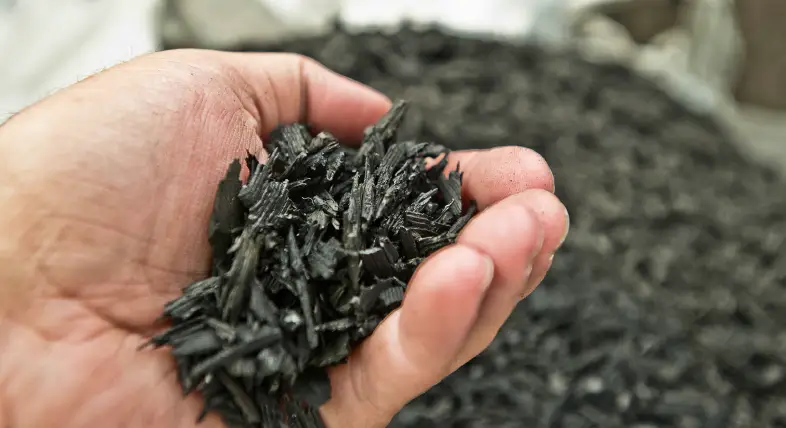The transformation of waste into wealth to improve the sustainability of the construction industry has resulted in increased research and implementation of new innovations. One example of this is the utilisation of crumb rubber in new road construction. This versatile material, originating from end-of-life tyres, has found its way into various applications, impacting industries across the globe. Its most notable use is in rubber modified asphalt for road construction, promising a magnitude of benefits ranging from environmental to economic.
The Crumb Rubber Revolution
Crumb rubber represents a leap forward in environmental practice. It’s produced through an ambient grinding or cryogenic process, where discarded tyres are broken down into granules. This eco-friendly material is not only preventing the accumulation of tyres in landfills but also propelling a wave of sustainable practices globally.
The application of crumb rubber isn’t limited to a single industry. It’s a testament to recycling’s potential, contributing to products in sports, automotive, construction, and more. However, its within the domain of rubber modified asphalt that we will focus.
What is Rubber Modified Asphalt?
Rubber modified asphalt is a composite of traditional asphalt and crumb rubber. This unique blend enhances the asphalts durability, noise absorption, and resistance to weather-related stress. Roads built using rubber modified asphalt are not only quieter and more comfortable to drive on but also significantly safer, thanks to the materials increased flexibility and skid resistance.

Furthermore, the environmental implications of using rubberised asphalt are profound. Every mile paved with this new material uses thousands of scrap tyres, essentially turning a global waste problem into a beneficial solution. It represents what can be achieved when innovation meets responsibility.
Adopting crumb rubber goes beyond environmental benefits; it’s also a financially sound decision. Though the initial investment may be higher, long-term savings can be considered. Reduced maintenance costs, longer road lifespans, and less frequent replacements make it a cost-effective option for governments and contractors worldwide.
Global Impact of Crumb Rubber
The utilisation of crumb rubber in road construction is gaining momentum around the world. Various countries are experiencing the benefits firsthand, adapting the technology to suit local conditions and requirements. From busy highways in urban areas to rural roads, rubber modified asphalt’s global footprint is expanding, backed by governmental policies and infrastructural investments focused on sustainable, long-lasting roadways.
The Future of Crumb Rubber
The crumb rubber industry is poised for growth, with rubber modified asphalt leading the charge. As more territories embrace this technology, research into enhancing the quality of crumb rubber and its applications continues to escalate. The industry’s future seems geared towards broader adoption and innovative methodologies, potentially branching into different sectors seeking sustainable alternatives.
The journey towards sustainable global infrastructure is ever-evolving, with innovative solutions and industry advancements surfacing regularly. Crumb rubber and rubberised asphalt represent just the tip of the iceberg in our pursuit of a greener tomorrow. At TEC, we’re committed to keeping you at the forefront of these developments.
